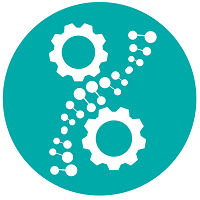Manufacturing & Analytical Characterization
Prologue: Mechanistic Models in Manufacturing
-

Indrajit Jagtap (he/him/his)
Director
Intelimek LLC, India
Prologue Speaker(s)
To view all Prologues, visit our library here and click "Enroll".
Mechanistic models are the cornerstone of Digital Twins, playing a pivotal role in accurately simulating real-world behaviors and optimizing various processes. In the pharmaceutical industry, these models have revolutionized drug discovery and development by predicting molecular interactions and enhancing drug efficacy. The integration of Internet of Things (IoT) and Artificial Intelligence (AI) further amplifies the power of mechanistic models, enabling real-time data analysis and driving adaptive solutions in ever-changing environments.
The synergy of mechanistic and AI models unlocks unprecedented insights and efficiencies, addressing the industry's demand for innovation and operational excellence. AI models augment mechanistic frameworks by utilizing data from complex Computer-Aided Engineering (CAE) simulations. This data undergoes a rigorous workflow of extraction, cleansing, and model development, which forms the basis for training AI models. Once trained, AI models enhance mechanistic principles by providing rapid and accurate predictions based on user inputs, thereby accelerating the speed and precision of insights.
Deploying these integrated models requires careful consideration of several factors. Reliability is essential; predictions must be rigorously validated against real-world data to ensure accuracy. Accessibility is another key consideration; user-friendly interfaces and automation in data processing and model deployment mean that users do not need extensive coding expertise to benefit from these models. Prediction targets vary depending on industry needs—whether focusing on individual variables or Key Performance Indicators (KPIs)—each approach offers unique insights into operational performance and decision-making.
A case study in the pharmaceutical sector highlights the effectiveness of automated Discrete Element Method (DEM) models augmented with AI. The benefits include accelerated decision-making, as predictions are generated in seconds, enabling quick adjustments to processes. Cost efficiency is achieved by reducing the reliance on physical experiments and shortening development cycles. Enhanced accuracy is another advantage, with AI models refining predictions based on real-time data to improve the precision of critical parameters.
Looking ahead, mechanistic models, enhanced by AI, are set to revolutionize pharmaceutical manufacturing. Transparency and reliability are crucial; exposing tuning parameters ensures that mechanistic models are not seen as black boxes, fostering trust and understanding. Synergy with experimental data further refines these models, enhancing AI predictions through an iterative process. Data and knowledge generation is amplified by integrating mechanistic models with AI, enabling intuitive interactions with data through technologies like Generative AI, and facilitating actionable insights.
Automation and democratization of these advanced modeling capabilities across organizations promote collaboration and expedite decision-making. In summary, AI-powered mechanistic models offer substantial benefits, including improved accuracy, speed, and efficiency, positioning pharmaceutical manufacturers at the forefront of innovation and enhancing their competitive edge.
Learning Objectives:
- Upon completion, participant will be able to acquire understanding about differences between Mechanistic and AI models, and how AI can complement Mechanistic models.
- Upon completion, participant will be able to sketch the framework and the roadmap of deploying AI powered Automated Mechanistic Models.
- Upon completion, participant will be able to articulate the features of AI powered Mechanistic Models like interconnected models, democratization, AI reliability, open models etc as well as appraise the benefits for innovation and operational excellence leading to accuracy, enhanced decision making and reduced time to market.

